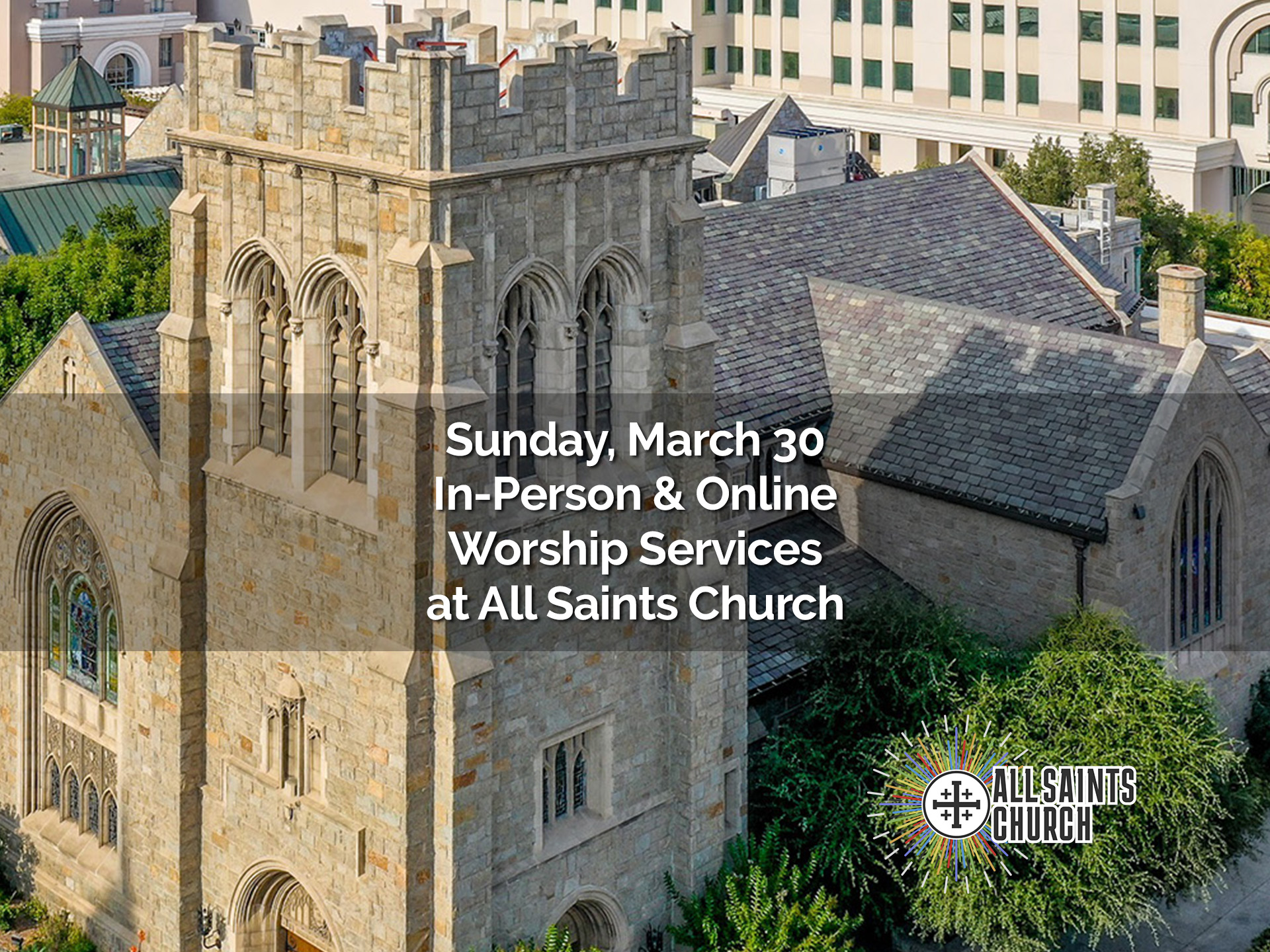The Gospel isn’t meant to be gulped down on Sunday morning, but gnawed on through the week so it really becomes a part of us. You’ve got to work at it, like a dog with a good bone! Here’s the Gospel for this coming Sunday — the fourth Sunday in Advent — with food for thought about the presence of God in us. Gnaw away!
Fourth Sunday in Advent – Luke 1:39-55
Within a few days Mary set out and hurried to the hill country to a twon of Judah, where she entered Zechariah’s house and greeted Elizabeth.
As soon as Elizabeth heard Mary’s greeting, the child leaped in her womb and Elizabeth was filled with the Holy Spirit. In a loud voice she exclaimed, “Blessed are you among women, and blessed is the fruit of your womb! But why am I so favored, that the mother of the Messiah should come to me? The moment your greeting reached my ears, the child in my womb leaped for joy. Blessed is she who believed that what our God said to her would be accomplished!”
Mary said,
“My soul proclaims your greatness, O God,
and my spirit rejoices in you, my Savior,
For you have looked with favor on your lowly servant.
And from this day forward all generations will call me blessed.
For yoyu, the Almighty, have done great things for me,
and holy is our Name.
Your mercy reaches from age to age
For those who fear you.
You have shown strength with your arm;
You have scattered the proud in their conceit;
You have deposed the mighty from their thrones
And raised the lowly to high places
You have filled the hungry with good things,
While you have sent the rich away empty.
You have come to the aid of Israel your servant,
Mindful of your mercy—
The promise you made to our ancestors—
To Sarah and Abraham and their descendants forever.”
He has shown strength with his arm;
he has scattered the proud in the thoughts of their hearts.
The Backstory – What’s Going On Here?
Unique among the Gospels, Luke intertwines the births of Jesus and John the Baptist, and in fact makes them members of the same family. In the annunciation, Gabriel refers to “your relative Elizabeth” (it’s traditionally translated “cousin,” but the less specific term “relative” is more accurate) being pregnant … and so it is to Elizabeth and Zechariah’s house that Mary rushes as soon as Gabriel departs. The linkage between John and Jesus is further solidified when Mary’s greeting elicits a response not just from Elizabeth, but from the still pre-natal John the Baptist, who leaps in her womb. Both Elizabeth and John confirm the truth of the annunciation … that the child within Mary is “the Messiah.”
Mary responds to this confirmation with one of the most revered, beautiful and oft-sung hymns in Christian history — The Magnificat, whose name is drawn from the first word of the song in Latin “Magnificat anima mea Dominum.”
The Magnificat is a glorious hymn of praise, at once glorifying God for the blessing Mary has accepted and proclaiming the universal impact of this event. It is no wonder that some of the finest composers in history have been moved to set this hymn to music for it is a clarion call of an event of cosmic proportions!
After the Magnificat, Luke moves through the birth narrative of John the Baptist and then immediately to the birth of Jesus. Thus, this section is the end of the introductory section of Luke.
A few things to chew on:
*The Magnificat has been said and sung for more than a thousand years as part of the Divine Office (usually in Evening Prayer, though in the Eastern Church it is a part of Sunday Matins). With Christianity and Christian communities existing around the globe in every time zone there is never a time where someone, somewhere on this planet is not singing this song. Imagine that … this song of praise to God is literally being sung without end by humanity. Take a few minutes each day and picture that … think of people all over the world in their own languages singing and saying this song of praise. Picture the planet earth and this song resonating from it. Regardless of whatever else is happening on “this fragile earth, our island home,” Mary’s song is continually being sung, praising God for the miracle of God’s presence with us.
*Elizabeth’s blessing of Mary is intruiging. She honors her by calling her the “mother of the Messiah” but she blesses her by calling Mary ” he who believed that what our God said to her would be accomplished!” Mary did more than just say yes to the extraordinary (and life-threatening!) offer that God gave her. After an event that would have most of us questioning our sanity (angel appears in your kitchen, says you’re going to be pregnant with God’s baby), Mary believes … even though what she is believing in by all accounts is impossible. The Magnificat is a direct parallel of Hannah’s song in Samuel (1 Samuel 2:1-10) … another account of God doing what was thought impossible through Hannah’s conception. What promises of scripture do you have the most trouble believing? How is your life different when you try to believe them?
Try This:
Elizabeth said: “The moment your greeting reached my ears, the child in my womb leaped for joy.”
Have you ever had someone in your life that so powerfully channeled God for you that just by entering the room, something in you moved? Maybe it was a single instance or maybe it was someone who has always been that presence for you?
There’s something in us that knows the presence of God. And one of the amazing gifts of our humanity made in God’s image is that we can be that presence for each other.
This week, take a few minutes at the beginning of each day and consider who has been that for you. Maybe take time to drop them a note or an email, but mostly just make sure you remember. Remember God’s power and ability to move in your lives through other people. Remember it as you go through the day … and wait in expectation for when it will happen next.
Soul Magnification
“My soul magnifies the Lord.”
Think about what that means for a moment.
“My soul magnifies the Lord.”
The translation of μεγαλύνει as “magnify” is pretty good. It literally means “to make large or big.” Particularly coupled with “my spirit rejoices in God my savior” it’s pretty clear Mary is talking about glorifying and praising God from the depths of her being.
Back when Luke wrote this Gospel, magnification wasn’t what it is today.
In 2012, [3] the Hubble space telescope snapped a picture of thousands of galaxies that are billions of light years away (it’s called the Hubble eXtreme Deep Field – click here to check it out – https://www.nasa.gov/mission_pages/hubble/science/xdf.html ). Last year, the (aptly named) Very Large Telescope in Chile looked at the same region and found 72 new galaxies, as well as measuring the distances and properties of 1,600 very faint galaxies (https://www.seeker.com/space/astronomy/this-is-the-deepest-view-into-the-universe-that-has-ever-been-seen).
And when the James Webb telescope launches (FINALLY, please, please, please) in 2021, at 100 times more powerful than the Hubble, it will be able to see further than that!
On the other end of the spectrum, we have developed electron microscopes with 43 picometer resolution. A picometer is one-trillionth of a meter and 43 picometer is less than half the radius of most atoms.
Magnification today allows us to bring into focus things that are beyond not only our vision but almost beyond our comprehension.
Think about that and then listen to Mary again:
“My soul magnifies the Lord”
What if we could do that for each other?
What if we could do that for the world?
What if, through our passion, through our gratitude for God’s grace in our lives, through our sheer love for God we could bring God into greater focus for people for whom God is not only not in their line of sight but beyond their comprehension.
That’s what a life of faith can do.
That’s what a life imbued with prayer and study of scripture, of commitment to incarnate lives with those among us who are most vulnerable, of living for the love of others and not out of fear of self … that’s what that life does.
When we praise God with our lips and with our lives, we bring God into focus for people without even knowing it. They may not be able to see God … but they see us.
When we live and love as Jesus did. When we say “Yes!” to God as Mary did, we magnify the Lord for the world around us. And just like the Webb telescope or an electron microscope that can see half the radius of an atom, when we do that, we help people see the deepest realities of creation that have always been there but just beyond our sight.
Who has magnified the Lord for you?
How can you magnify the Lord for the world this Christmas … and beyond?
. . . . . . . . . . . . . . . . . . . . . .
Check out the rest of Sunday’s readings
The Lectionary Page has all of the readings for this Sunday and every
Sunday – click here for this Sunday’s readings.
Collect for Sunday
Pray this throughout the week as you gnaw on this Gospel.
Purify our conscience, Almighty God, by your daily visitation, that your Son Jesus Christ, at his coming, may find in us a mansion prepared for himself; who lives and reigns with you, in the unity of the Holy Spirit, one God, now and for ever. Amen.
Want to read more?
“The Text This Week” is an excellent online resource for anyone who
wants to dive more deeply into the scriptures for the week.
. . . . . . . . . . . . . . . . . . . . .



